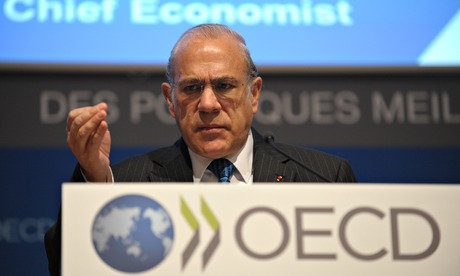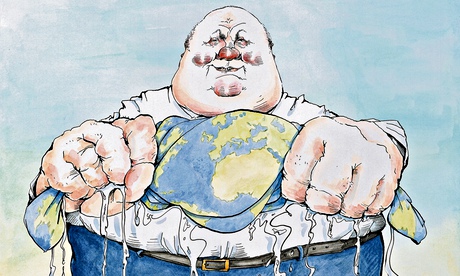She died alone and terrified in one of the bleakest parts of the country, and after the collapse of Shrien Dewani’s trial her family still has no answers
Anni Dewani, a young woman shot dead in Cape Town, has haunted South Africa for four years. After the collapse of the trial of her husband, Shrien Dewani, accused of masterminding her murder, she will continue to do so. Not only because she was young, beautiful and just married; not only because her heartbroken, desperate parents have been taken into so many South African hearts; but also because the country, its police force and its justice system failed her so completely.
Anni and Shrien honeymooned in South Africa after an extravagant wedding in India in 2010. After going on safari they came to Cape Town and, on Saturday 13 November, went out for dinner. On their return their taxi was hijacked. The taxi driver, Zolo Tongo, and Shrien claimed they were forced out of the car and that the hijackers drove off with Anni. Her body was found in the abandoned vehicle at dawn the next day. She had been shot at close range in the neck.
Shrien was apparently a victim of the criminal violence that plagues South Africa. The police, goaded as they were by the press frenzy, were under huge pressure to find the killers because hijacking and murder are so commonplace, but there were anomalies from the start. Gugulethu, where the hijacking occurred, is notorious for its murder rate. Why would Tongo take them there at night? Shrien, allegedly forced through a window, did not have a scratch on him, and neither did Tongo.
Whispers of disbelief quickly began to swirl. Shrien looked less and less innocent as detectives and journalists picked apart the sequence of events described, and the statements he had made. The police, however, allowed him to return to England before the inconsistent aspects of the case – and his possible involvement in his wife’s murder – were properly investigated.
Tongo was soon arrested. He pleaded guilty to being party to the murder but, in return for a reduction of sentence, said he would tell the truth and claimed that Shrien had asked him to organise the killing. The hitmen, Mziwamadoda Qwabe and Xolile Mngeni, were subsequently arrested, tried and jailed. Monde Mbolombo, the receptionist at the luxury Cape Grace hotel where the Dewanis were staying, said that he had put Tongo in contact with the hitmen. In exchange for immunity from prosecution – now under review due to the case collapsing – he agreed to testify against Shrien.
The idea of hiring people to commit murder is not that shocking in South Africa. Firearms are cheap and easy to find, as are hitmen. In 2006 a young woman, Dina Rodrigues, went to a taxi rank in Cape Town and hired four strangers to murder the baby daughter of her boyfriend’s ex-girlfriend. She paid a similar amount to that which Tongo claimed Shrien paid.
It is notable that Anni’s murder took place just four months after South Africa had successfully hosted the football World Cup, when the country was under intense scrutiny because of its record of violent crime. This coloured the investigation from the start.
The then-commissioner of police, Bheki Cele, is reported to have said: “A monkey came all the way from London to have his wife murdered here. Shrien thought we South Africans were stupid.” There seemed to be a great sense of relief that responsibility for this awful murder, a public relations disaster for South Africa, lay elsewhere.
Shrien was charged and four years later returned to stand trial. Everyone seemed to have a view on his innocence or guilt. It was revealed early on that perfect wedding photographs masked Anni’s doubts about marrying Shrien. There were sensational revelations about Shrien’s bisexuality and his involvement, both online and offline, in sadomasochistic sex with male prostitutes. “At last,” people thought, “a clear motive!”
Shrien’s sexual orientation and sexual practices clearly indicated a double life. But when put forward by the lacklustre prosecution as the reason for the murder, the judge, Janet Traverso, ruled this testimony irrelevant and the state’s case unravelled rapidly. This may not have been a popular move, but prejudice about a gay lifestyle should not subvert the need for hard evidence.
During the trial it became apparent that the investigation had been botched, and that much of the police work had been shockingly incompetent: lost paperwork, incomplete statements and unreliable ballistics reports.
Traverso chastised the National Prosecuting Authority. “You have had four years to prepare,” she told them when she dismissed the case. The evidence of the main witnesses was “riddled with contradictions” and fell “far below the threshold” of what a reasonable court could convict on.
Anni’s family, the Hindochas, have said that they – and by implication Anni – have been failed by South Africa’s justice system. They are right. Their daughter came here on her honeymoon and died alone and terrified in one of the bleakest parts of the country. Her grieving relatives have sought answers, as have South Africans.
In a country with such high levels of violence, there are so many who have failed to receive a robust investigation followed by the satisfaction of justice. As the Hindochas stood tearfully outside the courtroom after the verdict, there would have been so many South Africans sharing the family’s anguish at not knowing how or why a loved one died.




